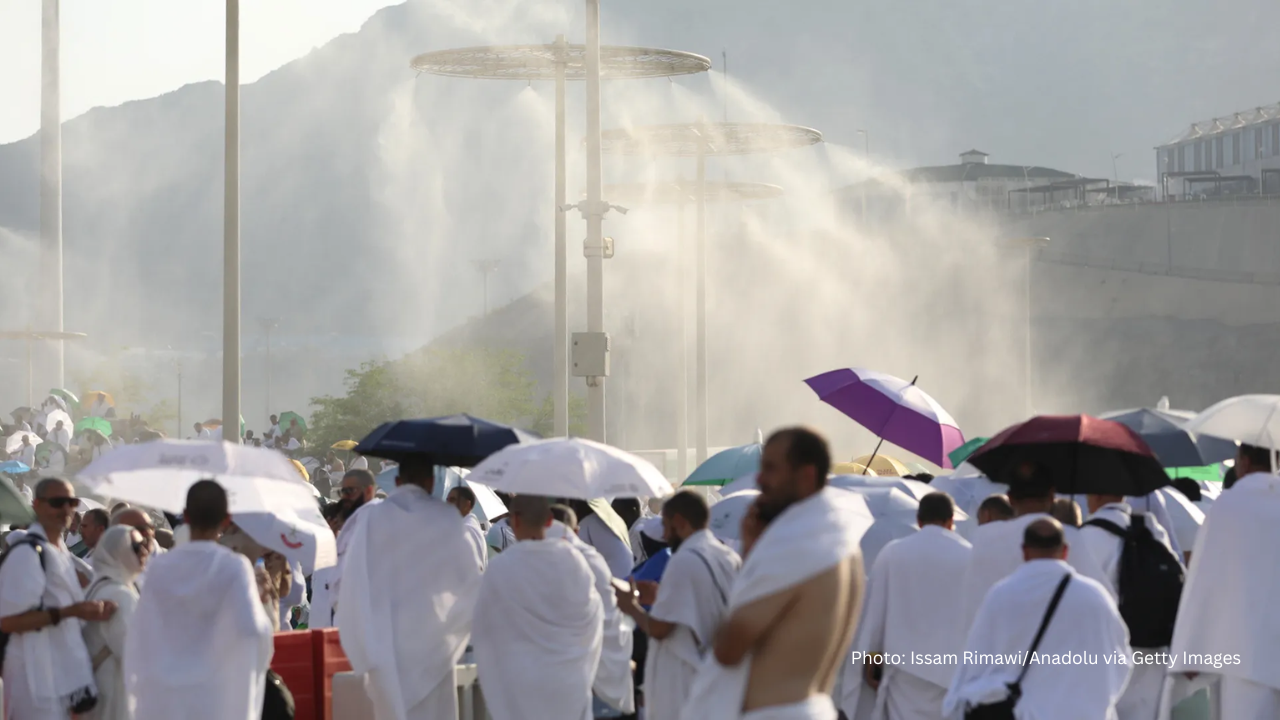June Climate Report- Heatwave Devastation During Hajj
Kazi Rhid | 19 June 2024
The recent Hajj pilgrimage in Saudi Arabia was marked by a tragic heatwave, resulting in the loss of over 1,300 lives. This devastating event has brought to light the urgent need for comprehensive heat protection measures, especially for vulnerable groups such as the elderly, people with disabilities, and migrant workers.
The extreme temperatures, which soared beyond 50 degrees Celsius (122 degrees Fahrenheit), posed a severe risk to the health and safety of the pilgrims. Many of those who perished were unauthorized pilgrims who lacked access to essential public facilities like air-conditioned tents, misting centers, transportation, or water rehydration areas. The high costs associated with official Hajj permits have been identified as a driving factor behind the unregistered status of many pilgrims, leaving them exposed to the harsh elements without adequate shelter or resources. Saudi authorities have taken steps to mitigate the impact of the heat for pilgrims, including the provision of free health services that treated about 1.3 million individuals during the event. However, the significant number of fatalities indicates that more needs to be done to address this major public health risk.
The issue is not only the fault of the Saudi administration, as many of the deceased were unauthorized for the pilgrimage. The Saudi administration has a quota system which allows different nations to have their Muslim population a chance to fulfil their religious duty. Especially Egypt has sent the highest number of unauthorized people through different travel agencies, the Egyptian government has responded by revoking the licenses of these travel agencies. Of the 660 dead among the Egyptians only 31 were authorized. There has been heartbreaking news of people spending their entire life savings on this hajj trip that were among the deceased. For a tragedy of such a scale there is no ‘one’ authority that we can point fingers at, it is a collective failure of multiple agencies involved.
The climate scientists all across the globe have been warning authorities to be on damage control, during the next hajj greater measures need to be taken in order to avoid situations like this. The tragedy underscores the broader implications of the climate crisis, which is making extreme heat events more frequent and intense. It also highlights the need for stronger heat protection measures not only during the Hajj but also for the millions of migrant workers in Saudi Arabia who are exposed to extreme heat amid inadequate protections. The recent events serve as a somber reminder of the human cost of extreme weather conditions and the importance of proactive measures to prevent such tragedies in the future. A 2019 study by experts at the Massachusetts Institute of Technology (MIT) found that even if the world succeeds in mitigating the worst effects of climate change, the Hajj would be held in temperatures exceeding an “extreme danger threshold” from 2047 to 2052.
What can be done to mitigate such risks in the future since the heatwaves because of climate change isn’t going away anytime soon? Broader public awareness of the heat related issues needs to be addressed from the landing airport to all the hotels and mosques. The countries the people come from should take more action regarding unauthorized travel over the capacity of the Saudi authorities. Since the pilgrimage is one of the key pillars of Islam it is bound to be a will of Muslims, but that shouldn’t mean that they would need to put their lives at risk. The Saudi authorities should have more emergency response teams in order to avoid this sort of tragedy. Since the lunar calendar is on its way to winter for the coming Hajj timeline, it should be only for the next five years that the Saudi government need to step up their actions in order to prevent heat related deaths.
Kazi Rhid is a Content Strategy Coordinator at CGS
The views expressed in these write-up are solely those of the author and do not necessarily reflect the policies of CGS.
